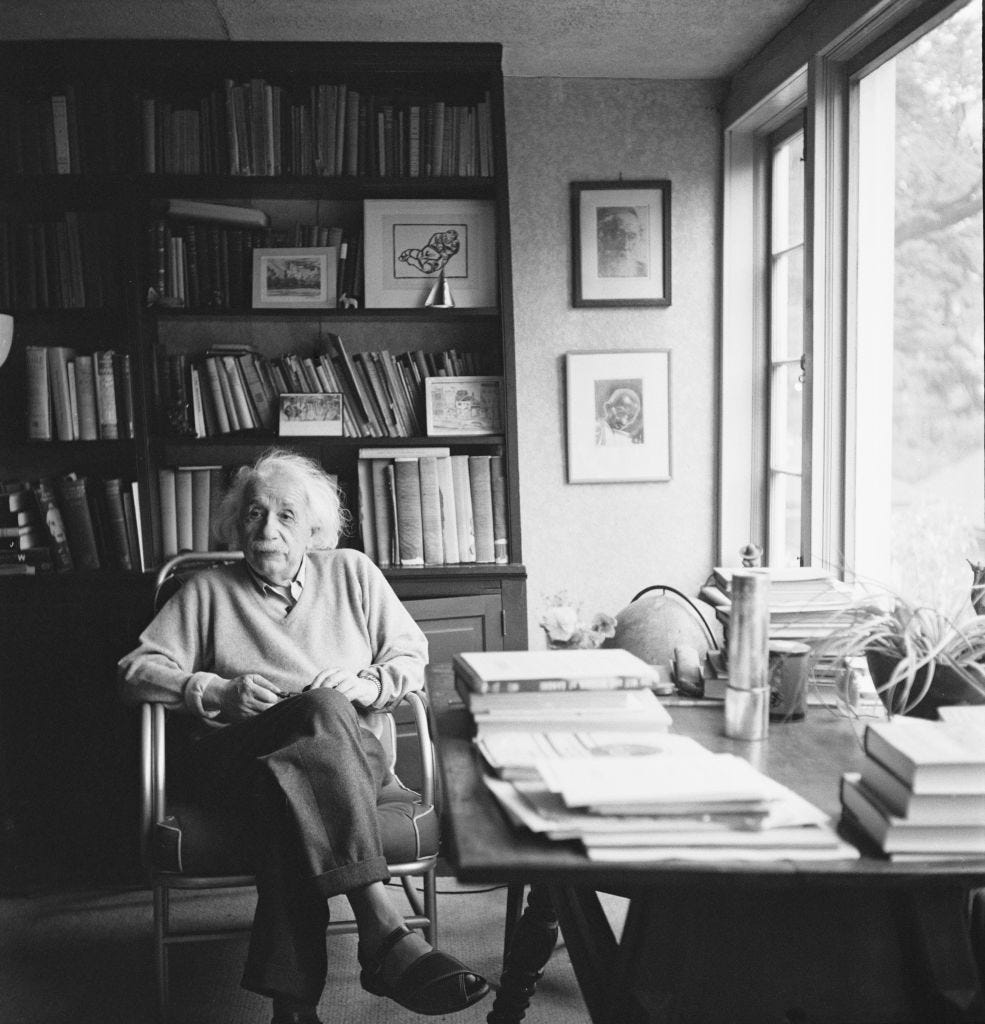Do scientists pray?
A young girl writes to Albert Einstein
As one of the world’s great intellects and arguably the most famous of all scientists, Albert Einstein—born on this day in 1879—was regularly questioned about his views on religion. In 1954, he broached the subject with Eric Gutkind, the author of a book he had recently read, in a letter which continues to generate debate to this date and from which this snippet is often quoted:
The word God is for me nothing more than the expression and product of human weaknesses, the Bible a collection of honorable but still primitive legends which are nevertheless pretty childish. No interpretation no matter how subtle can (for me) change this.
Eighteen years before he wrote to Gutkind, in January 1936, a young girl named Phyllis wrote to Einstein on behalf of her Sunday school class, and framed the question a little differently. She simply asked, “Do scientists pray?”
Einstein soon replied.
January 19, 1936
My dear Dr. Einstein,
We have brought up the question: Do scientists pray? in our Sunday school class. It began by asking whether we could believe in both science and religion. We are writing to scientists and other important men, to try and have our own question answered.
We will feel greatly honored if you will answer our question: Do scientists pray, and what do they pray for?
We are in the sixth grade, Miss Ellis’s class.
Respectfully yours,
Phyllis
January 24, 1936
Dear Phyllis,
I will attempt to reply to your question as simply as I can. Here is my answer:
Scientists believe that every occurrence, including the affairs of human beings, is due to the laws of nature. Therefore a scientist cannot be inclined to believe that the course of events can be influenced by prayer, that is, by a supernaturally manifested wish.
However, we must concede that our actual knowledge of these forces is imperfect, so that in the end the belief in the existence of a final, ultimate spirit rests on a kind of faith. Such belief remains widespread even with the current achievements in science.
But also, everyone who is seriously involved in the pursuit of science becomes convinced that some spirit is manifest in the laws of the universe, one that is vastly superior to that of man. In this way the pursuit of science leads to a religious feeling of a special sort, which is surely quite different from the religiosity of someone more naive.
With cordial greetings,
your A. Einstein
This exchange can also be found in the Letters of Note book. More info here. And you can hear it read by Louise Brealey and Toby Jones on the accompanying audiobook.




Spirit of the universe!
Loved this!